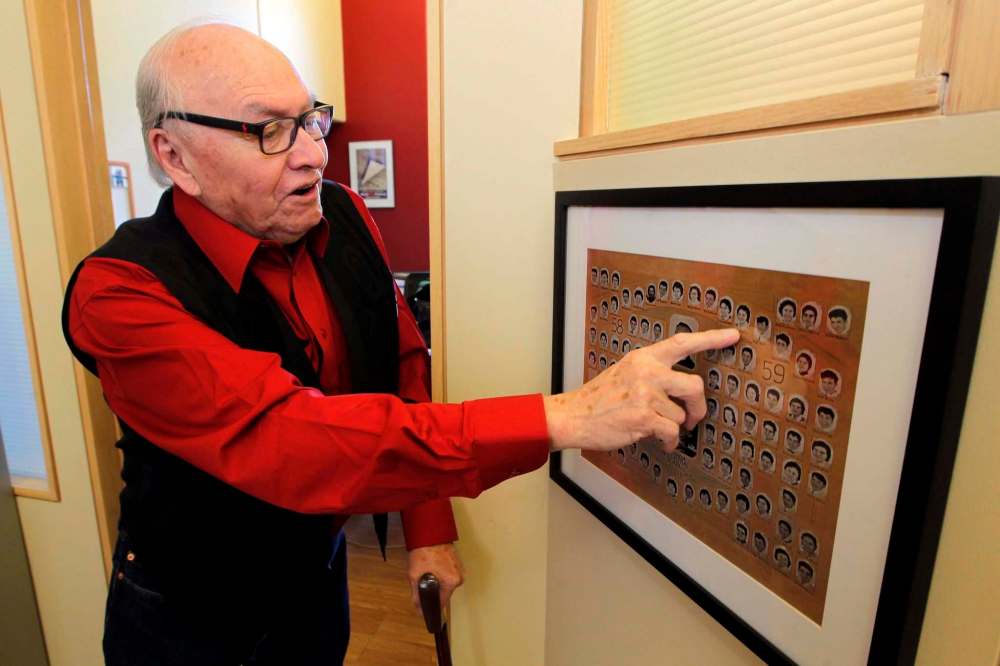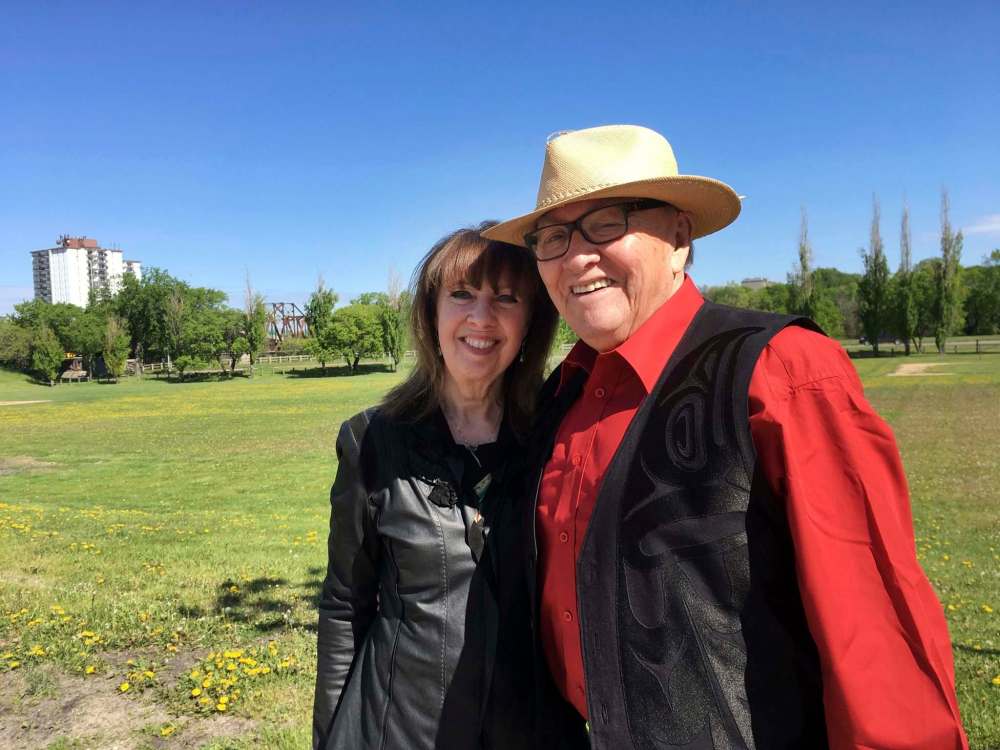Former classmates of city residential school to hold reunion
Advertisement
Read this article for free:
or
Already have an account? Log in here »
To continue reading, please subscribe:
Monthly Digital Subscription
$0 for the first 4 weeks*
- Enjoy unlimited reading on winnipegfreepress.com
- Read the E-Edition, our digital replica newspaper
- Access News Break, our award-winning app
- Play interactive puzzles
*No charge for 4 weeks then price increases to the regular rate of $19.00 plus GST every four weeks. Offer available to new and qualified returning subscribers only. Cancel any time.
Monthly Digital Subscription
$4.75/week*
- Enjoy unlimited reading on winnipegfreepress.com
- Read the E-Edition, our digital replica newspaper
- Access News Break, our award-winning app
- Play interactive puzzles
*Billed as $19 plus GST every four weeks. Cancel any time.
To continue reading, please subscribe:
Add Free Press access to your Brandon Sun subscription for only an additional
$1 for the first 4 weeks*
*Your next subscription payment will increase by $1.00 and you will be charged $16.99 plus GST for four weeks. After four weeks, your payment will increase to $23.99 plus GST every four weeks.
Read unlimited articles for free today:
or
Already have an account? Log in here »
Hey there, time traveller!
This article was published 27/05/2017 (3085 days ago), so information in it may no longer be current.
A high school reunion like no other will happen next month in River Heights, and organizer Ted Fontaine can’t wait. He attended the Assiniboia Indian Residential School on Academy Road when it opened in 1958 and said many of his fellow residential school survivors are not long for this world.
“We lost someone last week,” Fontaine, 75, said.
The event, which takes place June 23 and 24, isn’t just an opportunity to reconnect with classmates, he said. It’s a chance to connect with area residents, who may not have known one of the infamous institutions was located in their midst.
“Here we were, in the middle of this urban centre, a bunch of Indian kids, seven days a week, 10 months a year,” Fontaine said.

The school is now home to the Canadian Centre for Child Protection, and RCMP forensic labs now stand where students’ residences used to be. A restored photo of the first students who attended the school in 1958 hangs in the offices of the centre, including Fontaine and the man who ran the school, Rev. Omer Robidoux, who later became a bishop.
Former students such as Fontaine say they were treated humanely by staff at the school.
“They were looking at us as real people,” Fontaine said. When he attended Fort Alexander Indian Residential School as a younger student, he said he was shown films that demonized and denigrated aboriginals. “It made me hate my own people.”
Fontaine wrote about the physical, psychological and sexual abuse he experienced there in his memoir, Broken Circle: The Dark Legacy of Indian Residential Schools.
In high school at Assiniboia, in his mid-teens and close to being a full-grown man, he didn’t experience abuse. He remembers the school’s cook was a Grey Nun who greeted each student by name and left bedtime snacks in the cafeteria so the kids wouldn’t go to bed hungry.
The students had little to do with folks in River Heights, other than occasionally raiding their gardens and shovelling their walks in the winter for spare change, Fontaine said.

He ended up marrying one of them after meeting Morgan Sizeland again by chance 20 years later. She often accompanies her husband when he speaks to schools and faith groups across Canada about the residential school system, its troubling legacy and the need for reconciliation.
“I’m so proud of him for the work he’s done,” Morgan Fontaine said.
On Friday, the couple stopped by the site of the Assiniboia school before heading to R.B. Russell high school for an event. Ted pointed out where hockey scouts used to eye the talent on the school’s outdoor rinks and a spot next to Academy Road where a historical marker will be erected as a permanent reminder of the school.
Fontaine has made it his mission to share the residential school experience with all Canadians, and the reunion in Winnipeg is a chance for reconciliation, he said. There will be tours and teas and a storytelling tent. Survivors and former staff will share their memories of the school with people who didn’t know about the place or what happened with residential schools.

“You’ll hear the good and the bad,” said University of Manitoba Prof. Andrew Woolford, a genocide scholar who is helping to organize the reunion.
“I hope that what people will take home with them is that the residential school system was designed to destroy indigenous groups,” Woolford said. “It had a genocidal purpose.”
For more information on the reunion, go to wfp.to/Ej7.
carol.sanders@freepress.mb.ca

Carol Sanders
Legislature reporter
Carol Sanders is a reporter at the Free Press legislature bureau. The former general assignment reporter and copy editor joined the paper in 1997. Read more about Carol.
Every piece of reporting Carol produces is reviewed by an editing team before it is posted online or published in print — part of the Free Press‘s tradition, since 1872, of producing reliable independent journalism. Read more about Free Press’s history and mandate, and learn how our newsroom operates.
Our newsroom depends on a growing audience of readers to power our journalism. If you are not a paid reader, please consider becoming a subscriber.
Our newsroom depends on its audience of readers to power our journalism. Thank you for your support.

